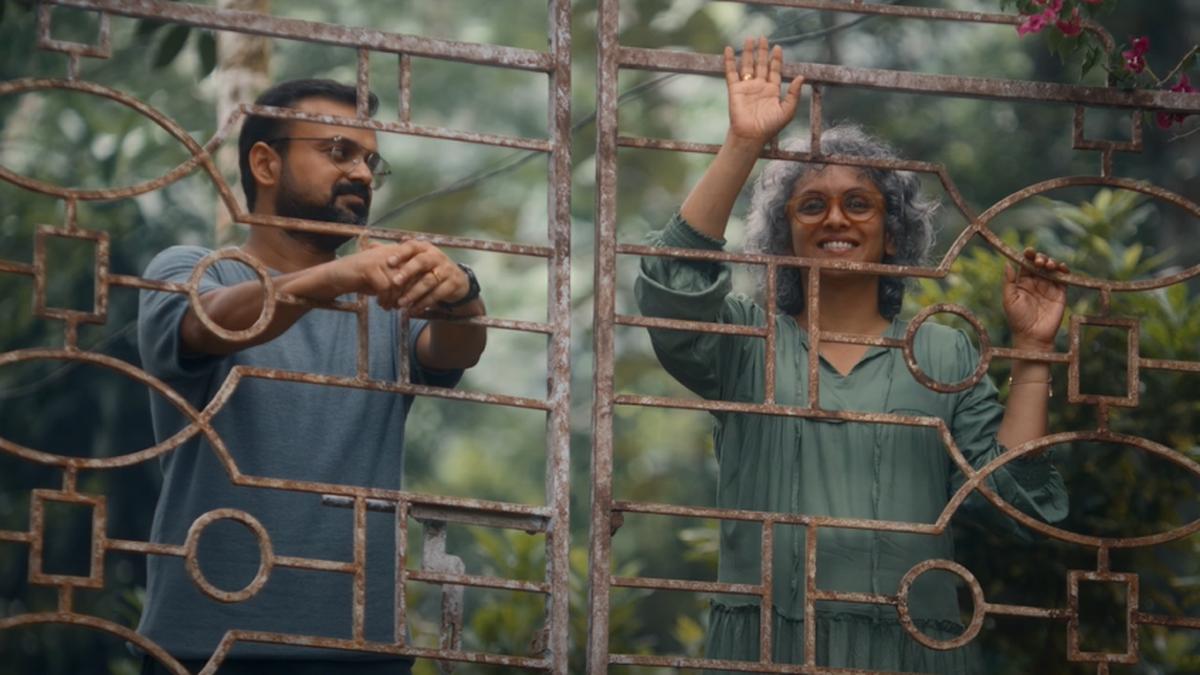
In a historic move for both the United Kingdom and Indian cinema, the Hindi-language film “Santosh” has been chosen as the U.K.’s official entry for the Best International Feature category at the prestigious Oscars. Directed by the acclaimed British-Indian documentarian Sandhya Suri, this thrilling narrative film sets itself apart by venturing into new territories artistically and culturally. Notably, “Santosh” is not the first film from the Indian subcontinent to receive this prestigious honor; it follows in the footsteps of Sarmad Masud’s “My Pure Land,” a feminist Western set in Pakistan, which was the U.K.’s submission back in 2017. Yet, for Santosh, the distance traveled is indeed significant.
Sandhya Suri expressed her complex emotions surrounding the nomination with a mix of anticipation and an understanding of the unpredictability of such distinctions. “I was truly hoping that we would represent the U.K., but as a filmmaker, it’s best not to dwell on the outcome of things we can’t control,” she shared. The moment the news broke, she was jubilant, expressing her joy with an emphatic fist pump – a testament to the gravity of the moment for her and her team.
The film’s lead actress, Shahana Goswami, learned just a day ahead of the public announcement that “Santosh” would serve as the U.K.’s Oscar contender. She acknowledges the film’s British foundations but emphasizes its profound connections to India. “Santosh is an Indian co-production crafted with an Indian cast and partially Indian crew, directed by an Indian-origin storyteller narrating an Indian tale,” Goswami articulates. She is careful, however, not to claim full ownership of the film, acknowledging the intricacies of cultural appropriation. “While Santosh is not ours in entirety, we can celebrate how far it has traveled, given its Indian setting and the talent involved.”
On a personal level, Goswami finds “Santosh” to be particularly meaningful.
. The film leans heavily on her character, a challenge she relished, especially given that it has been a decade since she last shouldered such responsibility in every frame, following her role in Rubaiyat Hossain’s Bangladeshi film “Under Construction.”
Celebrated for its premiere at Cannes, “Santosh” has since seen impressive success in French cinemas, nearing 150,000 in attendance over a two-month run. The hope is now that this acknowledgment as an Oscar entry will open doors for distribution in other markets, particularly India and the U.K. “These two countries are very dear to me. We’ve demonstrated that ‘Santosh’ resonates with audiences as a crossover film thriving within its genre,” notes Suri.
Shahana Goswami remains optimistic about the prospects for the film’s distribution in India, especially via streaming platforms, which she says suit certain niche films in the current era. Meanwhile, Sunita Rajwar, who portrays a seasoned policewoman in the film, reflects on the unique quality of “Santosh.” From her perspective, the film was always destined to be more than a conventional police drama. The chemistry between the cast, particularly between Rajwar and Goswami, was something Suri carefully considered through multiple auditions to ensure the story’s authenticity and depth.
Sandhya Suri’s connection to India permeates her work, even if her visits have become less frequent since she became a mother. Her dedication to portraying serious themes, like violence against women, in a meaningful way is evidence of her thoughtful approach to filmmaking. Suri frequently questions her depiction choices, ensuring each film is as poignant and accurate as possible.
“Santosh” reflects the evolution of global arthouse cinema, a medium that continually transcends national boundaries. As a diverse collaborative effort involving BBC Films, Petit Chaos and Haut et Court (France), ZDF Arte (Germany), Razor Film Produktion (Germany), and India’s Suitable Pictures, it is a testament to the power of international partnership. As it stands among entrance from Poland, Canada, France, Germany, Switzerland, Iceland, Senegal and others, all unique in their own right, Santosh’s selection highlights the shifting dynamics and global conversations within cinema.
The nod is particularly notable in light of the U.K.’s prior success with Jonathan Glazer’s “The Zone of Interest,” which won the Best International Feature Oscar as a German-Polish-Yiddish film. “Santosh” has a challenging act to follow, but its selection is an achievement in itself, setting the stage for continued dialogue and collaboration between Indian and international cinema.










